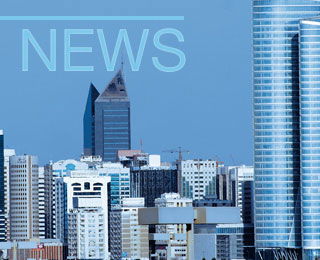Vicat announced FY20 sales of EUR2805m, up 5.5 per cent from EUR2740m in FY19. EBITDA rose to EUR557m, up by 10.1 per cent LfL and EBIT increased to EUR298m, a rise of 17.5 per cent LfL.
Vicat’s consolidated net income reached EUR172m, up 17.5 per cent LfL from EUR160m in FY19. Cash flow totalled EUR461m up 12.9 per cent LfL and net debt fell to EUR1202m, down EUR88m. Leverage is at 2.16x.
EBITDA rose by EUR26m in the Americas, EUR14m in Asia, EUR9m in Africa and EUR1m in Europe. EBITDA fell by EUR9m in France and by EUR7m in the Mediterranean. Capital expenditure amounted to EUR300m of which almost half was invested on the new kiln line at the Ragland cement plant, Alabama, USA.
Geographical performance
In France sales totalled EUR963m in FY20, a decline of 3.5 per cent LfL from EUR987m in FY19. EBITDA in France also declined to EUR171m, a fall of 7.3 per cent from EUR182m in FY19. Vicat reported it had near-shutdown in mid-March but a strong 2H20 in its domestic market, while lower energy costs and the cost-cutting plan offset lower demand.
In Europe FY20 sales amounted to EUR423m, up 1.2 per cent LfL from EUR401m in FY19. EBITDA increased to EUR97m up from EUR96m in FY19. The Swiss market was barely affected by the pandemic, but in Italy sales fell by 10.5 per cent and EBITDA was down by 34.4 per cent.
In the Americas FY20 sales rose to EUR636m, up 17.2 per cent LfL from EUR589m in FY19. Infrastructure and residential markets continued to grow. In Brazil sales reached EUR156m, rising by 49 per cent. Brazilian EBITDA also rose to EUR43m from EUR29m in FY19.
Asian sales in FY20 totalled EUR248m, down by 0.1 per cent LfL from EUR375m in FY19. India saw a complete shutdown for almost a month in 1H20. The recovery came in the 4Q20, but Indian sales reached EUR286m in FY20, down 0.5 per cent on FY19. Kazakhstan had a sharp increase in 1Q20 export markets and the operating environment deteriorated in 2Q-3Q before volume growth returned in September.
In the Mediterranean FY20 sales reached EUR173m, up 19.1 per cent LfL on EUR171m in FY19. EBITDA declined by EUR11m, having fallen by EUR4m in FY19. Turkish sales reached EUR124m, up 19.4 per cent and Turkish EBITDA reached EUR8m, down by 24.8 per cent on FY19. Egyptian FY20 sales totalled EUR49m, up 18.2 per cent LfL and EBITDA suffered a loss of EUR19m. Cement prices also decreased during the year.
African FY20 sales totalled EUR262m, a rise of 20.8 per cent LfL from EUR217m in FY20. EBITDA reached EUR56m compared to EUR47m in FY19. Cement sales dreamed by 15 per cent thanks to strong demand in Senegal. Other West African countries also saw increases in activity supported by a rapid ramp-up of Cement Matériaux du Mali’s subsidiary grinding plant and strong momentum in Mauritania. Meanwhile, government projects stoppages in Senegal held back aggregate sales.
Climate reporting
Net CO2 emissions per tonne of cement produced in France fell by 15 per cent between 1990 and 2019. The group (operating in 12 countries) has committed to reducing CO2 emissions to 504kg net CO2 per tonne of cement by 2030. This equals a reduction of 13 per cent between 2019-30. Carbon neutrality has been targeted by 2050. The clinker factor is targeted to be decreased to 75 per cent in 2030 from 81 per cent in 2019 and alternative fuel usage will rise from 26 per cent in 2019 to 40 per cent in 2030.
Outlook
The group's operations are still expected to be significantly affected by the pandemic in 2021 but to varying degrees depending on individual government responses. Business levels are highly volatile. Other negative factors are unfavourable exchange rates and energy costs. The group will continue construction at the Ragland plant in the USA, boost capacity at plants in India and build new terminals while ramping up CO2 reduction. Investment in production facilities is estimated to EUR365m in 2021.
